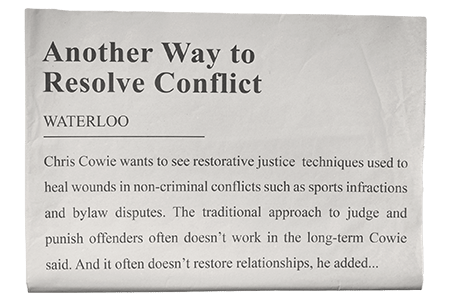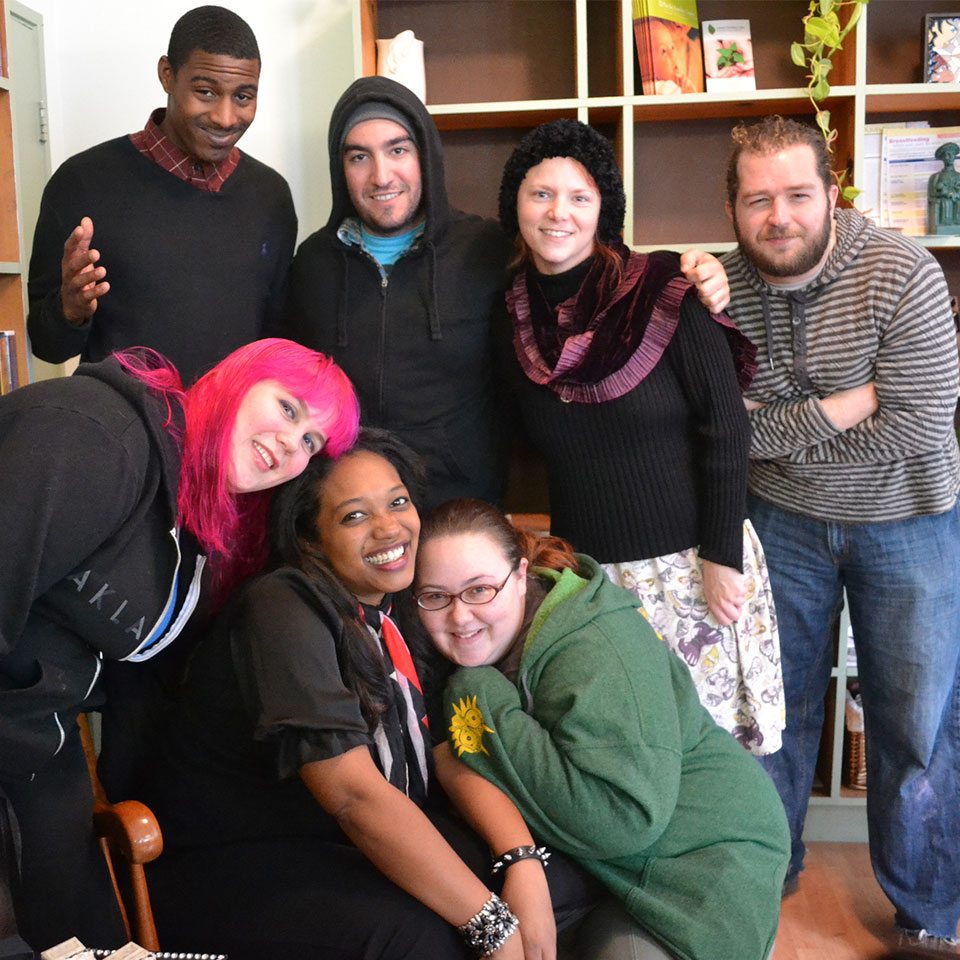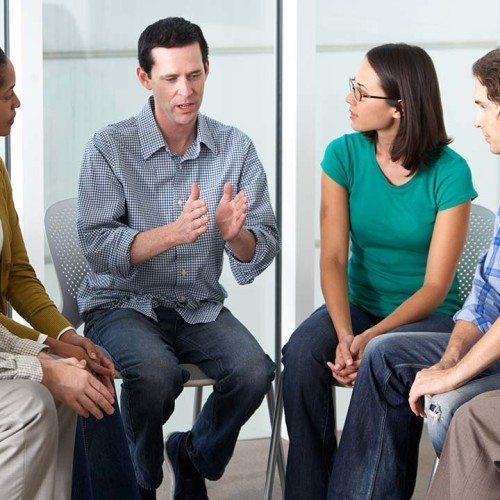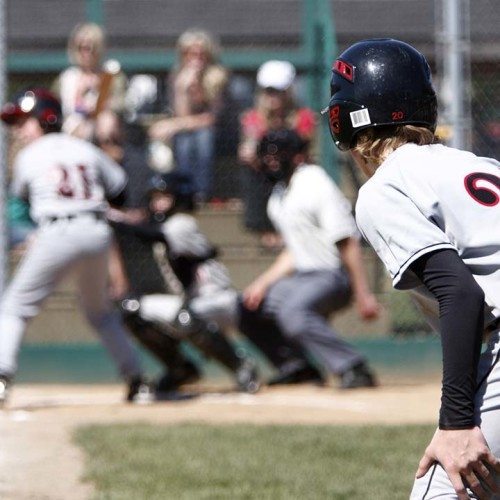Restorative Justice (RJ) is a way of addressing conflict and crime that enables the person who caused the harm, people who were affected by the harm, and the community to create a meaningful solution.
In contrast to the traditional justice system in Canada which seeks to establish a punishment for each act of wrongdoing assuming that will contribute to victim and societal satisfaction, RJ focuses on repairing damage and restoring relationships.
RJ is not a specific model, instead it is a set of principles that can be flexibly applied to a variety of situations of conflict, crime, abuse, etc.







 READ MORE
READ MORE




